AUßENPOLITISCHES
Kommentar US-Außenpolitik
Führung? Vergiss es!
Präsident Barack Obama hat keine Vorstellung davon, wie eine Führungsrolle der USA ohne Militäreinsätze aussehen könnte.
USA Unruhen nach Todesschüssen auf schwarzen Teenager
Ein Polizist im US-Staat Missouri erschießt einen unbewaffneten schwarzen Teenager und löst damit heftige Unruhen in der Stadt aus. Der Bürgermeister ruft nun die Bewohner auf, Ruhe zu bewahren.
US-Unruhen
US-Polizei nimmt 90-jährige Holocaustüberlebende fest
Unruhen in Ferguson
Eine Kleinstadt in Missouri
von Michael Paulwitz
Die Fergusoniade, der Ernstfall und das »medial engineering«
Russland-Sanktionen werden jetzt teuer für uns
Die EU-Beschlüsse haben nun Folgen für hiesige Unternehmen: Wachstumsprognosen werden gesenkt, der Euro verliert an Wert, der Deutsche Aktienindex stürzt ab. Die letzte Hoffnung ruht auf der EZB.
Chefanalyst Hellmeyer: "Ukraine-Krise führt zu nachhaltigen Verwerfungen in der Wirtschaft"
Russlands heimliche Jagd nach Gold
Still und leise kauft die russische Notenbank Edelmetall auf, in riesigen Mengen. Moskau besitzt inzwischen den fünftgrößten Goldschatz der Welt. Experten vermuten einen geheimen Plan.
Moskau: Westen hat kein Interesse an Aufklärung von MH17-Absturz
Ungarn
Viktor Orbán: Absage an westlichen Liberalismus und Masseneinwanderung
Ablehnung wächst: Norwegen wird wohl niemals der EU beitreten
Britische Hotelkette nimmt Bibeln aus ihren Zimmern
Malta
Tanzen im Bikini bei religiöser Feier: Deutsche entschuldigt sich
Streit um Berg-Karabach
Aserbaidschans Präsident droht Armenien mit Krieg - auf Twitter
Erdogan gewinnt Wahl in Türkei
"Das Volk hat seinen Willen gezeigt"
Auszüge aus der Charta der Hamas
"Islamischer Staat" auf dem Vormarsch: Dschihadisten erobern größten Staudamm im Irak
Irak
Dschihadisten dringen in Kurdengebiete vor
2014 1st August Syrian and Iraqi War Map plus before and after Maps
German fighters from ISIS singing a song (nasheed, Eng. subs) for Angela Merkel
Video
The Islamic State (Full Length)
(Für ein freies Kurdistan)
Das kurdische Masada
(Kommentar zu Syrien)
Ohne Assad geht es nicht
Wegen "schwarzer Magie"
Meistgepiercter Mann darf nicht nach Dubai einreisen
Fast 100 Tote bei Massenaufruhr in China
Eine Woche nach einem Zusammenstoß zwischen Uiguren und Polizisten in Chinas Unruheprovinz Xinjiang gaben Behörden Zahlen bekannt. Die Rede ist von 37 toten Zivilisten und 59 erschossenen Uiguren.
Kambodscha: Gericht verurteilt Rote Khmer zu lebenslanger Haft
(Zu Südafrika und dem amerikanischen Multikulturalismus…)
Klein-Amerika an der Spitze Afrikas
Viel mehr Vermisste im mexikanischen Drogenkrieg
(Kolumbien. 300 Morde = 22 Jahre…)
Pablo Escobars fleißigster Killer ist wieder frei
Hunderte Morde gehen auf das Konto von "Popeye". Jetzt durfte er das Gefängnis verlassen. Wie lange er seine Freiheit genießen kann, ist allerdings unklar. Auf ihn warten noch alte Rechnungen.
INNENPOLITISCHES / GESELLSCHAFT / VERGANGENHEITSPOLITIK
Immer mehr Sozialleistungen in Deutschland
Käßmann plädiert für Abschaffung der Bundeswehr
ARD-Doku "Goodbye G.I."
Unsere kleine Stadt
Eine ARD-Dokumentation erklärt, was der Abzug der US-Armee aus Heidelberg bedeutet. Dabei beleuchtet "Goodbye G.I." nicht nur die harmonische Seite des deutsch-amerikanischen Verhältnisses.
Strategien des Pazifismus: Margot Käßmann und das Böse
Eine Kolumne von Jan Fleischhauer
Die Islamisten im Irak köpfen und steinigen - trotzdem empfiehlt Margot Käßmann den Deutschen einen bedingungslosen Pazifismus. So viel Unempfindlichkeit für moralische Dilemmata ist verblüffend. Sogar der Kirche ist das Verständnis für das Teuflische abhanden gekommen.
Krieg in Gaza, der Ukraine und im Irak: Waffen! Waffen! Waffen!
Eine Kolumne von Jakob Augstein
Ukraine, Gaza, Irak: Jeder weiß, Gewalt wird die Probleme dort nicht lösen. Dennoch findet die Gewalt kein Ende - und auf die eine oder andere Weise mischt Deutschland überall mit. Eine neue Kultur des Krieges breitet sich aus. Wir müssen uns ihr entgegenstellen.
Deutsche Waffen gegen Islam-Barbaren?
Gelungenes Täuschungsmanöver mit strategischer Absicht
Deutschland läßt kämpfen
Munitionsverbot im Hause: der Grünen nächster toller Streich
(Russland-Sanktionen)
Der politische Sündenfall des Bernd Lucke
Die Glaubwürdigkeit einer Partei ist abhängig von der Glaubwürdigkeit ihrer Führung
(AfD)
Die Stunde der Wahrheit
von Dieter Stein
AfD will in Goldhandel einsteigen
DM-Münzen für mehr Staats-Euros
Um mehr staatliche Zuschüssezu bekommen, will die rechtspopulistische AfD mit Gold handeln. Unter anderem hat sie vor, DM-Goldmünzen zu verkaufen.
Landtagswahl
Die Sachsen haben zurückgeschossen
Ergebnisse, Reaktionen, Stimmen
Wahl-Ticker: NPD will Neuauszählung
Geschichte für Brüssel
Gauck beschämt über deutsche Kriegsgreuel
General-Sponeck-Kaserne wird umbenannt
Deutsche Einheit
Kein Denkmal, nirgends
von Norbert Borrmann
Journalistische Querfronten zu 1914
(Geschichtsklitterungen über das angeblich kriegslüsterne Deutschland des Kaiserreiches gegenüber seinen westlichen Nachbarn…)
Straff durchorganisiert, aber trotzdem falsch geplant
Britisches Folterlager Bad Nenndorf
Bunte Beschäftigungstherapie
(Zur Erinnerung)
Todes-Folter im Namen der Majestät
Sachsen führt Gedenktag für Vertriebene ein
(Nationaldenkmal)
Deutsche Einheits-Würfel
Minensucher-Ehrenmal an der Alten Liebe in Cuxhaven
Gedenken an den 1. September 1939: ein Routineschwindel
LINKE / KAMPF GEGEN RECHTS / ANTIFASCHISMUS / RECHTE
(Blu-News siegt in Gerichtsurteil)
Konservatives Internetportal setzt sich gegen „taz“ durch
Linke Heuchler
Sie protestieren gegen Chlorhühnchen, aber nicht gegen Putin. Während sie ihre eigene Verbürgerlichung leugnen, halten sie sich für eine kritische Minderheit. Dieser spießige linke Mainstream in unserem Land verachtet die Demokratie. Ein Debattenbeitrag.
von Reinhard Mohr
(Zu Reinhard Mohr)
„Linke Heuchler“ – wie unerwartet
(Ulla Jelpke hat diesmal Hannover 96 im Visier)
Jelpke kritisiert Fußballförderung der Bundeswehr
Rechtsextreme nutzen verstärkt soziale Netzwerke
Unverhohlene Nazi-Propaganda und Ausländerhatz im Satireformat: Vielfältig sind die Methoden der Rechtsextremen, um Jugendliche in den sozialen Netzwerken für ihre Zwecke zu ködern.
Jugendschutz.net
Rechte Szene nutzt verstärkt soziale Netzwerke für Propaganda
Rechtsextreme ködern Jugendliche mit modernen Kampagnen. Inhalte auf Facebook und YouTube werden rasch gesperrt, Probleme machen Angebote wie das russische Netzwerk VK.
(…ist ja natürlich mal wieder "absurd"…)
Nach Klartext-Interview
NPD klagt gegen Ministerin Schwesig
(…das ist leider eine "Panne"…)
Justiz-Panne: Verfahren gegen NPD-Chef Pastörs geplatzt
(…aber die Justiz wird keine Kosten scheuen, diese gutzumachen…)
Fall Pastörs
Staatsanwaltschaft will Justizpanne wettmachen
Nach 20 Jahren an der Parteispitze
Republikaner: Rolf Schlierer tritt ab
(Liberale leugnen die Repression gegen rechts)
Notizen zu einem Interview mit Armin Nassehi (Fundstücke 22)
(Zur Absage des Zwischentag in Düsseldorf und der Berichterstattung der Westdeutschen Zeitung)
Wer zersetzt hier die Demokratie?
Das Denunziantentum lebt! Linksextremisten starten Kampagne gegen Umwelt & Aktiv
Am Hörer vorbeigesendet: Korrekte Moral im Rundfunk
Demonstrationsrecht
"Zivile Bullen raus"-Rufe sind erlaubt
Für die Lautsprecher-Durchsage "Zivile Bullen raus" musste eine Demonstrantin Bußgeld zahlen. Jetzt urteilten die Karlsruher Richter, die Strafe sei unangebracht.
(Linksradikale Täter wahrscheinlich…)
160.000 Berliner Haushalte wegen Vandalismus ohne Netz
(Linksradikale Täter laut Bekennerschreiben sicher…)
S-Bahn Berlin - Staatsschutz ermittelt Frank Henkel: "Anschlag auf unser Zusammenleben"
Gefechtsübungszentrum Altmark
Linksextremisten bekennen sich zu Anschlag auf Bundeswehr
Wien
Mildes Urteil für Linksextremisten
EINWANDERUNG / MULTIKULTURELLE GESELLSCHAFT
Die deutsche Flüchtlingspolitik steht vor dem Kollaps
Ohne Aufhebung des Rechts auf Asyl geht bald nichts mehr
SPD fordert Ausländerwahlrecht
SPD will nicht schärfer gegen Islamisten in Deutschland vorgehen
Nicht jeder ist willkommen
von Michael Paulwitz
Ex-Bundespräsident Wulff erhält Toleranzpreis
Deutschland lockt junge Ausländer mit 560 Millionen Euro
Professoren fordern Massenstipendien für Syrer
Zahl osteuropäischer Hartz-IV-Empfänger steigt
Immer mehr Flüchtlinge aus Frankreich: Saarland schaltet Merkel ein
Italien schickt Asylbewerber nach Deutschland
Die steigenden Asylbewerberzahlen führen zu Streit: Bayern ist verärgert, weil Italien viele Migranten einfach weiter nach Deutschland reisen lässt. Zahlen der UN belegen das Fehlverhalten.
Steigende Flüchtlingszahlen in Bayern
CSU-Innenminister attackiert Italien
Joachim Hermann wirft der italienischen Regierung vor, die EU-Asylbestimmungen zu missachten. Sie lasse die Flüchtlinge einfach weiterreisen.
Schlechte Behandlung: Richter stoppen Rückführung Asylsuchender nach Italien
Asylbewerberansturm: Duisburg errichtet Zeltlager
Hessen muss Flüchtlinge in Zelten unterbringen
Hanau
Beschluss der Stadt
Flüchtlinge in der Kaserne unterbringen
Forderung aus der Union
Deutsche sollen Asylanten bei sich zu Hause aufnehmen
Städtebund fordert „Marshallplan“ für Asylsuchende
Ade Clinton soll abgeschoben werden
Ein undenkbares Foto
Obertshausen - Der richtige Bericht über den jungen Obertshausener Ade Clinton wäre einer über den Erfolg von Integration. Dass es stattdessen einer über eine drohende Abschiebung sein muss, wollen viele Freunde des Flüchtlings nicht akzeptieren.
Frankfurt/Oder
Lautstarker Protest vor dem Bahnhof (gegen Abschiebegefängnis)
Taxis in Offenbach
Nur keine Hemmungen
(Zur grünen Bezirksbürgermeisterin von Friedrichshain-Kreuzberg, Monika Herrmann)
Berlin-Kreuzberg
Dealer ja, Touristen nein
Frankfurt
Anschlag auf Jüdin
Antisemitismus
Im Land der Verdrucksten
von Fabian Schmidt-Ahmad
Neuer Antisemitismus
Ein schwarzer Tag in der Stadtgeschichte nach 1945
Text der Rede des FW-Fraktionsvorsitzenden im Römer
Antisemitische Attacken auch in Großbritannien
Staatsschutz ermittelt nach Attacke auf Jesiden in Herford
Tschetschenen: Behörden sehen hohe Gewaltaffinität
Mit Flaschen aufeinander eingehauen
Eskalation der Gewalt: 60 Flüchtlinge liefern sich Massenschlägerei in Berlin
Flüchtlinge würden trinken und pöbeln
Bayernkaserne in Freimann: Anwohner fühlen sich bedroht
Berlin
Besetzte Schule sorgt erneut für Negativschlagzeilen
(…handle es sich bei dem Beschuldigten um einen aus Jordanien stammenden Mann, der bereits wegen anderer Brandstiftungsvorwürfe aufgefallen sei und derzeit in Untersuchungshaft sitze…)
Brand in Berliner Moschee: Staatsanwaltschaft ermittelt gegen Tatverdächtigen
Dreieich Polizei jagt Sechsergruppe
(Niederländer mit türkischen Wurzeln…)
194 Kilogramm Heroin beschlagnahmt
International gesuchter Drogen-Dealer in München gefasst
("Ercan Findikoglu, alias "Predator" alias "Oreon" alias "Amonyak" gilt als einer der talentiertesten Hacker der Welt - und als Drahtzieher eines Bankraubs historischen Ausmaßes.")
Cyber-Kriminalität: Mutmaßlicher Drahtzieher von 40-Millionen-Raub gefasst
(warum das wohl?)
Immer mehr Gewalt in den unteren Ligen
Jagdszenen auf dem Fußballplatz
Bielefeld: Polizei sucht Kopftreter per Foto
(Neckar-Odenwald-Kreis)
Häftlinge verprügeln Justizbeamte
Die Gewalt unter jungen Straftätern nimmt zu
Neuer Missbrauchsskandal in Großbritannien
Mindestens 1400 Kinder in nordenglischer Provinz missbraucht
Vergewaltigt, geschlagen, mit Benzin übergossen
Über Tausend Mädchen sind im englischen Rotherham jahrelang sexuell missbraucht worden. Die aus Pakistan stammenden Täter wurden geschont. Hatten die Behörden Angst, als rassistisch zu gelten?
Organisierter Kindesmissbrauch
Die Angst, ein Rassist zu sein
In der nordenglischen Stadt Rotherham wurde jahrelang nichts gegen Pädophilenringe unternommen. Vermeintliche „Political Correctness“ bei Polizei und Behörden begünstigte den organisierten Kindesmissbrauch. Das hat nun Konsequenzen.
Vertuschungsskandal in Großbritannien
Pakistaner sollen über 1.400 Kinder vergewaltigt haben
Rotherham child abuse scandal: The background to the report
Leitkulturdebatte
Angriff auf „britische Werte“
Islamistische Vorstellungen durchdringen staatliche Schulen. Premierminister Cameron will das nicht mehr dulden. Jetzt hat auch Großbritannien eine Leitkulturdebatte.
Mißbrauch in England: Roger Scruton über Rotherham
KULTUR / UMWELT / ZEITGEIST / SONSTIGES
Stadtschloss Berlin
Schlossbauhütte (Video)
Ostpreußen: Kirchenfresken vernichtet
Kirche Arnau – Liebe Deinen Nächsten – oder Deutsch-Russischer Skandal?
Keine Hoffnung für die Restaurierung der Kirche Domnau/Ostpreußen – Die Sanierung wird verhindert
Welterbestatus des Gartenreiches Dessau-Wörlitz in Gefahr: Kulturstiftung DessauWörlitz protestiert gegen den beabsichtigten Bau von gigantischen Windrädern
Zersiedelung für Fortgeschrittene
"Flächenwidmungskompetenzen weg von den Gemeinden", fordert eine neue Initiative. Dass es dazu kommt, ist aber illusorisch
Reise
Malaysia
Das total verrückte Elsass im Monsunregen
Alles nachgemacht: Colmar unter Palmen, die Hochkönigsburg im Regenwald und Geranien im Monsun. Besucher Malaysias staunen über ein geklontes Stück Frankreich in Asien – man spricht sogar Französisch.
Aufmerksamkeit statt Zerstörung
Auf Kosten der Steuerzahler
Streit um Umbenennung von Studentenwerken
Englisch als Gerichtssprache
Sprachschützer attackieren Hamburger Senat
Gutmenschen mögen „Kiezdeutsch“
Das gebildete Deutschland schafft sich ab
Das Wissen der Deutschen erodiert. In Neukölln etwa haben 40 Prozent der Jugendlichen keinen Schulabschluss. Dabei haben wir aus unserer Geschichte gelernt, dass Dummheit tödlich sein kann.
Familienpolitik
Das Armutszeugnis der CDU Brandenburg
Freie Liebe
Sex mal anders
Irgendwann kommt bei fast allen Paaren der Gedanke: Das kann doch nicht alles gewesen sein. Aber was kommt dann? Wir haben drei Menschen getroffen, die versuchen, Liebe anders zu leben: zu dritt, mit vielen – die Geschichte einer Versuchung von Jenny Marrenbach
(Karlheinz Stockhausen und die Polygamie)
Mary Bauermeister
Er hat gesagt: "Ich liebe euch beide"
Peter Sloterdijk: Die schrecklichen Kinder der Neuzeit – eine Rezension
Fortschritt bedeutet nicht nur Abgrund
Die Moderne bringt sozialen Aufstieg und politische Emanzipation: Eine Replik auf Peter Sloterdijks Pessimismus Von Ralf Fücks
Demokratie: Eine moderne Religion
von Susanne Kablitz
(harmloser Artikel, aber in der Tendenz richtig)
Das sind die Schwächen von Wikipedia
Wie zuverlässig ist das Online-Lexikon Wikipedia wirklich? Wir zeigen die Schwachstellen auf – und worauf man achten sollte.
(Wer weiß, wozu die Kooperation mit google in Zukunft noch zu gebrauchen ist…)
Kinderporno-Fahndung
Hessens Justizministerin lobt Google
"Andere Unternehmen sollten sich dem anschließen."
Die Dichter und das Augusterlebnis 1914
Fatih Akin sagt Film über armenischen Journalisten ab
Kein türkischer Schauspieler will Mordopfer Hrant Dink darstellen
Europäische Konkurrenz verdrängt deutsche Sauerkirschen
Monsanto muss Millionenentschädigung an US-Kleinstadt zahlen
Krieg auf dem Acker
Massiver Pestizideinsatz bei transgenen Nutzpflanzen bedroht die Artenvielfalt weltweit. Nutzpflanzen, Unkräuter wie auch Wildkräuter werden zunehmend resistent gegen Pflanzenschutzmittel
(Ebola-Virus auf dem Vormarsch)
Annotationen zur Seuchenlage
Zeitungskrise
In eigener Sache
Die Zeitungen stecken in der größten Krise ihrer Geschichte. Das liegt nicht nur am Internet. Anlass genug, über unsere eigene Branche nachzudenken.
Autoren-Proteste gegen die Marktmacht von Amazon
Neuer Manipulationsskandal bei Öffentlich-Rechtlichen
Wie die "RTL II News" die "Tagesschau" abhängen
Zum ersten Mal in der Geschichte hat RTL II mit den "News" mehr 14- bis 49-Jährige erreicht als die "Tagesschau". Das Erfolgsrezept ist simpel – und ein mittelschwerer Kulturschock.
Änderung bei Facebook
Keine Posts mehr, die zu Tränen rühren
Facebook will hochwertige Beiträge von weniger relevanten unterscheiden und Posts mit Spam-Inhalten im Newsfeed seiner Nutzer ausblenden. Ihr werdet NIE glauben, woran der Algorithmus Qualität erkennen soll.
(Dr. Alfons Proebstl beim Deutschen Anleger Fernsehen)
Alles muß raus!
Dr. Alfons Proebstl 23 - Die grünen Spiesser!
(Der seltsame Weg des Roland Schill)
Ronald Schill: Hamburgs Container-Kandidat
Der Absturz des "Richter Gnadenlos"
Sex bis zum Genickbruch Ronald Schill veröffentlicht Skandal-Biografie
Nach Kritik umbenannt
Lokal in Taiwan führte "Long Live Nazi"-Spaghetti
Nach scharfer Kritik
Zara zerstört T-Shirts mit KZ-Optik
Modekette zieht T-Shirt zurück
Was hat Zara sich nur dabei gedacht?
(political correctness)
Am Hörer vorbeigesendet: Korrekte Moral im Rundfunk
Hashtags, die du für dein Holocaust-Gedenkstätten-Selfie nicht verwenden solltest
(Kritische Rezension)
Detlef Brandes / Holm Sundhaussen / Stefan Troebst (Hgg.): Lexikon der Vertreibungen
Dokumentarfilm
Teurer Freikauf - Das Geschäft mit den Rumänien-Deutschen
Dokumentarfilm
Der Banker - Master of the Universe



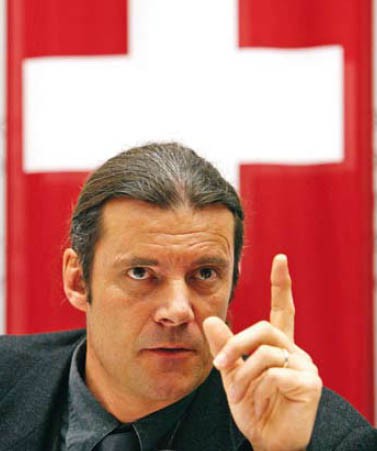 Zeit-Fragen: Warum haben Sie die «Petition für eine neutrale Schweiz» lanciert, was wollen Sie damit erreichen?
Zeit-Fragen: Warum haben Sie die «Petition für eine neutrale Schweiz» lanciert, was wollen Sie damit erreichen?
 del.icio.us
del.icio.us
 Digg
Digg
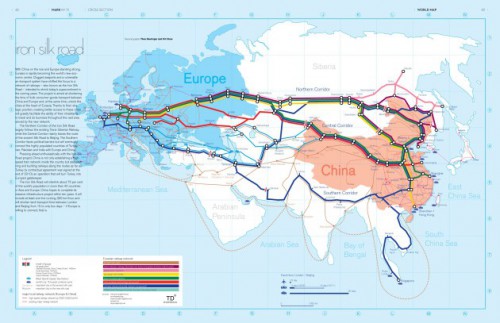


 Un reportaje de la revista alemana 'Der Spiegel' muestra un estado lamentable de la flota aérea de Alemania en vísperas de la planeada ampliación de la presencia de las fuerzas de la OTAN en Europa de Este.
Un reportaje de la revista alemana 'Der Spiegel' muestra un estado lamentable de la flota aérea de Alemania en vísperas de la planeada ampliación de la presencia de las fuerzas de la OTAN en Europa de Este.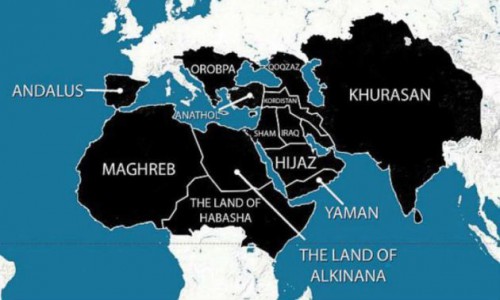
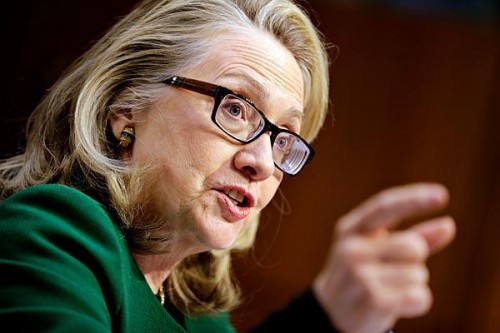

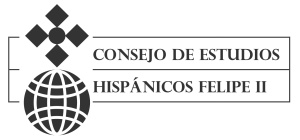

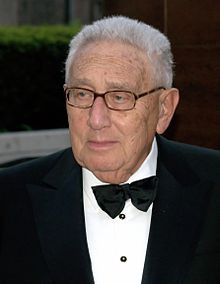 Henry Kissinger
Henry Kissinger 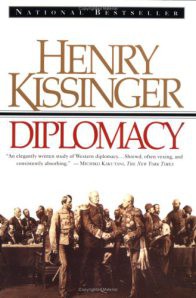 It is interesting that he uses the term “governance” and not government. In any case, here Henry is spitting out the party line that the US spread its influence far and wide only for the benefit of bringing “free and representative governance” to the downtrodden (brown and yellow, usually) people of the world.
It is interesting that he uses the term “governance” and not government. In any case, here Henry is spitting out the party line that the US spread its influence far and wide only for the benefit of bringing “free and representative governance” to the downtrodden (brown and yellow, usually) people of the world.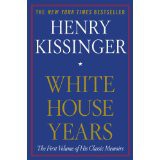 While likely to have happened eventually anyway (arbitrary borders established in Paris at the end of the Great War were not going to last forever), clearly the US government moved this along significantly.
While likely to have happened eventually anyway (arbitrary borders established in Paris at the end of the Great War were not going to last forever), clearly the US government moved this along significantly.
 Gerade in Zeiten großer Krisen wie in der Ukraine, im Irak und in Syrien muß die Frage erlaubt sein, wie unsere internationale Ordnung aussehen sollte.
Gerade in Zeiten großer Krisen wie in der Ukraine, im Irak und in Syrien muß die Frage erlaubt sein, wie unsere internationale Ordnung aussehen sollte.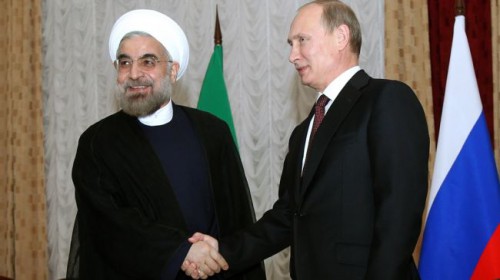
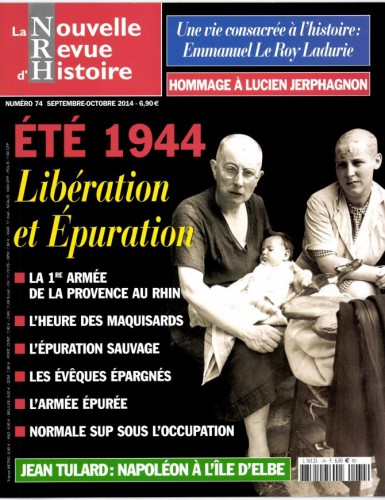
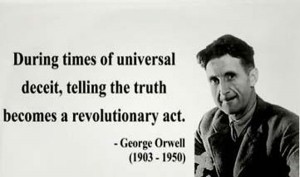


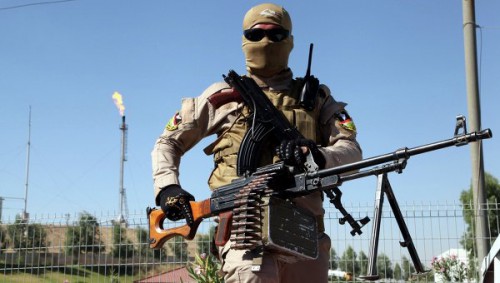

 Bajo la fórmula “Revolución Conservadora” (RC) acuñada por Armin Mohler (Die Konservative Revolution in Deutschland 1918-1932) se engloban una serie de corrientes de pensamiento, cuyas figuras más destacadas son Oswald Spengler, Ernst Jünger, Carl Schmitt y Moeller van den Bruck, entre otros. La denominación de la RC (o KR en sus siglas originales), quizás demasiado ecléctica y difusa, ha gozado, no obstante, de aceptación y arraigo, para abarcar a una serie de intelectuales alemanes “idiosincráticos” de la primera mitad del siglo XX, sin unidad organizativa ni homogeneidad ideológica, ni –mucho menos- adscripción política común, que alimentaron proyectos para una renovación cultural y espiritual de los auténticos valores contra los principios demoliberales de la República de Weimar, dentro de la dinámica de un proceso palingenésico que reclamaba un nuevo renacimiento alemán y europeo (una re-generación).
Bajo la fórmula “Revolución Conservadora” (RC) acuñada por Armin Mohler (Die Konservative Revolution in Deutschland 1918-1932) se engloban una serie de corrientes de pensamiento, cuyas figuras más destacadas son Oswald Spengler, Ernst Jünger, Carl Schmitt y Moeller van den Bruck, entre otros. La denominación de la RC (o KR en sus siglas originales), quizás demasiado ecléctica y difusa, ha gozado, no obstante, de aceptación y arraigo, para abarcar a una serie de intelectuales alemanes “idiosincráticos” de la primera mitad del siglo XX, sin unidad organizativa ni homogeneidad ideológica, ni –mucho menos- adscripción política común, que alimentaron proyectos para una renovación cultural y espiritual de los auténticos valores contra los principios demoliberales de la República de Weimar, dentro de la dinámica de un proceso palingenésico que reclamaba un nuevo renacimiento alemán y europeo (una re-generación).